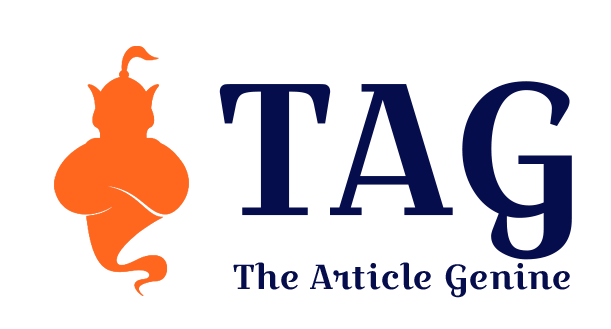Exploring The World Of Animation: Top Courses For Aspiring Animators
Animation is a captivating art form that brings characters and stories to life through the magic of movement. It’s no wonder that animation has gained immense popularity in the world of entertainment, from animated feature films to video games and online content. If you’re an aspiring animator, you’re entering a world of boundless creativity and exciting opportunities. In this blog post, we’ll explore some of the top animation courses that can help you embark on a successful career in this dynamic field.
Why Animation?
Before we dive into the courses, let’s briefly discuss why animation is such a compelling field:
Creative Expression: Animation allows you to unleash your creativity and imagination. You can create entire worlds, characters, and narratives from scratch.
Diverse Career Opportunities: Animators are in demand not only in the entertainment industry but also in fields like advertising, education, healthcare, and more. This versatility offers numerous career options.
Constant Innovation: Animation continually evolves with technological advancements. As an animator, you’ll be at the forefront of these innovations, pushing the boundaries of what’s possible.
Global Appeal: Animation transcends cultural and language barriers, making it a universal form of storytelling that can reach audiences worldwide.
Now, let’s explore some of the top animation courses that can help you build the skills and knowledge necessary for a successful career in this field:
1. Bachelor of Fine Arts (BFA) in Animation:
A BFA in Animation is a comprehensive program that provides a strong foundation in both traditional and digital animation techniques. These programs typically cover areas such as character design, 2D and 3D animation, storyboarding, and visual effects. BFA programs often culminate in a capstone project that allows students to showcase their skills and creativity.
2. Master of Fine Arts (MFA) in Animation:
For those looking to take their animation skills to the next level, an MFA in Animation is an excellent choice. MFA programs delve deeper into animation theory, advanced techniques, and often include opportunities for specialization in areas like character animation, visual effects, or experimental animation. These programs often require a thesis project or portfolio presentation.
3. Online Animation Courses and Workshops:
If you prefer a flexible learning environment, many online courses and workshops offer in-depth training in specific aspects of animation. Websites like Coursera, Udemy, and LinkedIn Learning offer a wide range of animation courses taught by industry professionals. These courses cover topics such as 2D animation, 3D modeling, rigging, and animation software like Adobe Animate and Blender.
4. Animation Bootcamps:
Animation bootcamps are intensive, short-term programs that focus on specific animation skills. They are ideal for those looking to gain practical experience quickly. Bootcamps often cover areas like character animation, game design, and motion graphics. Some well-known animation bootcamps include Animation Mentor and iAnimate.
5. Animation and Film Schools:
Many renowned film and art schools offer animation programs that are highly regarded in the industry. Schools like California Institute of the Arts (CalArts), Savannah College of Art and Design (SCAD), and Ringling College of Art and Design offer animation degrees and have produced many successful animators.
6. Online Tutorials and YouTube Channels:
For those who prefer a self-paced and budget-friendly approach, there is a wealth of free online tutorials and YouTube channels dedicated to animation. Websites like CartoonSmart and Animation Resources offer tutorials, articles, and resources for aspiring animators. YouTube channels like The Animator’s Survival Kit and The Animation Guild provide valuable insights and tips.
7. Specialized Workshops and Masterclasses:
Keep an eye out for specialized animation workshops and masterclasses conducted by industry professionals. These events often focus on niche areas of animation and provide hands-on experience and networking opportunities.
Choosing the Right Course:
Selecting the right animation course is a crucial step in your journey as an animator. Here are some factors to consider:
Your Career Goals: Determine whether you want to work in feature films, television, video games, advertising, or another animation niche. Some courses offer specialized tracks tailored to specific industries.
Your Learning Style: Consider whether you prefer classroom-based learning, online courses, or a combination of both. Your learning style should align with the format of the course you choose.
Faculty and Industry Connections: Research the instructors and faculty members in the program. A strong teaching team with industry experience can provide valuable insights and connections.
Curriculum and Facilities: Review the curriculum and resources available. Ensure that the course covers the areas of animation that interest you and provides access to the necessary software and equipment.
Reviews and Alumni Success: Look for reviews and testimonials from current students and alumni. Alumni success stories can be a good indicator of the program’s quality.
Cost and Financial Aid: Consider the cost of the program and explore financial aid options, scholarships, or grants that may be available.
Conclusion:
Animation is a dynamic and rewarding field that offers a wide range of creative and professional opportunities. Whether you choose a formal degree program, online courses, workshops, or a combination of these options, the key to success in animation lies in your dedication, creativity, and continuous learning. By choosing the right animation courses and honing your skills, you can unlock a world of artistic expression and career possibilities in this exciting industry.
